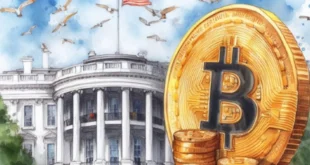The Irish Government is currently weighing whether to postpone a planned VAT reduction for the hospitality sector until July 1, 2026. The move is being considered as part of broader fiscal planning that could free up resources for wider tax cuts in Budget 2026, expected next October.
According to sources familiar with internal discussions, the measure—originally committed to in the Coalition’s Programme for Government—would reduce VAT from 13.5% to 9% at an estimated cost of approximately €1 billion. This would account for about two-thirds of the total tax reductions already identified for this year, as stated by Minister for Finance Paschal Donohoe in remarks made last Tuesday.
VAT Relief May Be Reworked, Not Canceled
While the VAT cut remains part of the government’s policy agenda, officials are exploring whether it can be implemented more selectively. One idea under discussion is applying the lower 9% VAT rate only to core hospitality businesses—such as restaurants, cafés, and pubs—while excluding the accommodation sector.
So far, no final decisions have been made regarding either the delay or a sector-specific rollout. The Irish Times was first to report on the potential deferral.
Niall Collins, Minister of State at the Department of Justice and Fianna Fáil TD for Limerick County, emphasized during an appearance on RTÉ’s Today with Philip Boucher-Hayes that a blanket VAT reduction may not be the most targeted solution. He argued instead for more sector-specific interventions to address economic pressure points more efficiently.
Collins acknowledged that the hospitality sector is under considerable strain and highlighted the government’s obligation to support jobs in that space, as well as in SMEs and retail. However, he stressed that reducing VAT from 13.5% to 9% in a single step would carry a “massive cost” and has not yet been agreed upon.
Policy Still in Negotiation Phase
Minister Collins made clear that any tax package, including proposed changes to VAT and PRSI, will involve negotiations, compromises, and prioritization. He said the government is only at the beginning of this process, and a balance must be struck between fiscal sustainability and social responsibility.
“There’s room for tax cuts,” Collins noted, but added that the government’s priority remains helping those in greatest need—particularly young people, people with disabilities, and other vulnerable groups. He also raised concerns about past VAT reductions not being passed on to consumers and emphasized that better targeting and oversight would be key this time.
Vintners Warn of Deepening Crisis in Hospitality Sector
Pat Crotty, Chief Executive of the Vintners Federation of Ireland (VFI), also joined the RTÉ programme, calling on the government to take urgent action to support hospitality businesses or risk more widespread closures—especially among pubs.
Crotty acknowledged that not every business in the sector requires state support, but said there is a “huge disparity” in profitability across the country. He highlighted that rural establishments typically operate with thinner margins than their urban counterparts. Even some busy venues are only breaking even, while others are running at a loss.
“A lot of businesses are vulnerable,” he said, underscoring the financial fragility facing many operators despite rising costs and uneven demand.
Outlook: Targeted Relief or Broad Policy?
The government is facing growing pressure to act, both from industry stakeholders and within its own ranks. As the budget planning process continues, ministers must decide whether a broad VAT cut will be rolled out as promised, or whether more targeted measures—potentially less expensive but more precise—will be favored instead.
What remains clear is that while the hospitality sector is still navigating post-pandemic recovery, many operators are urging immediate, substantial relief to avoid closures and job losses in the year ahead.
 The Daily Star Ireland
The Daily Star Ireland

